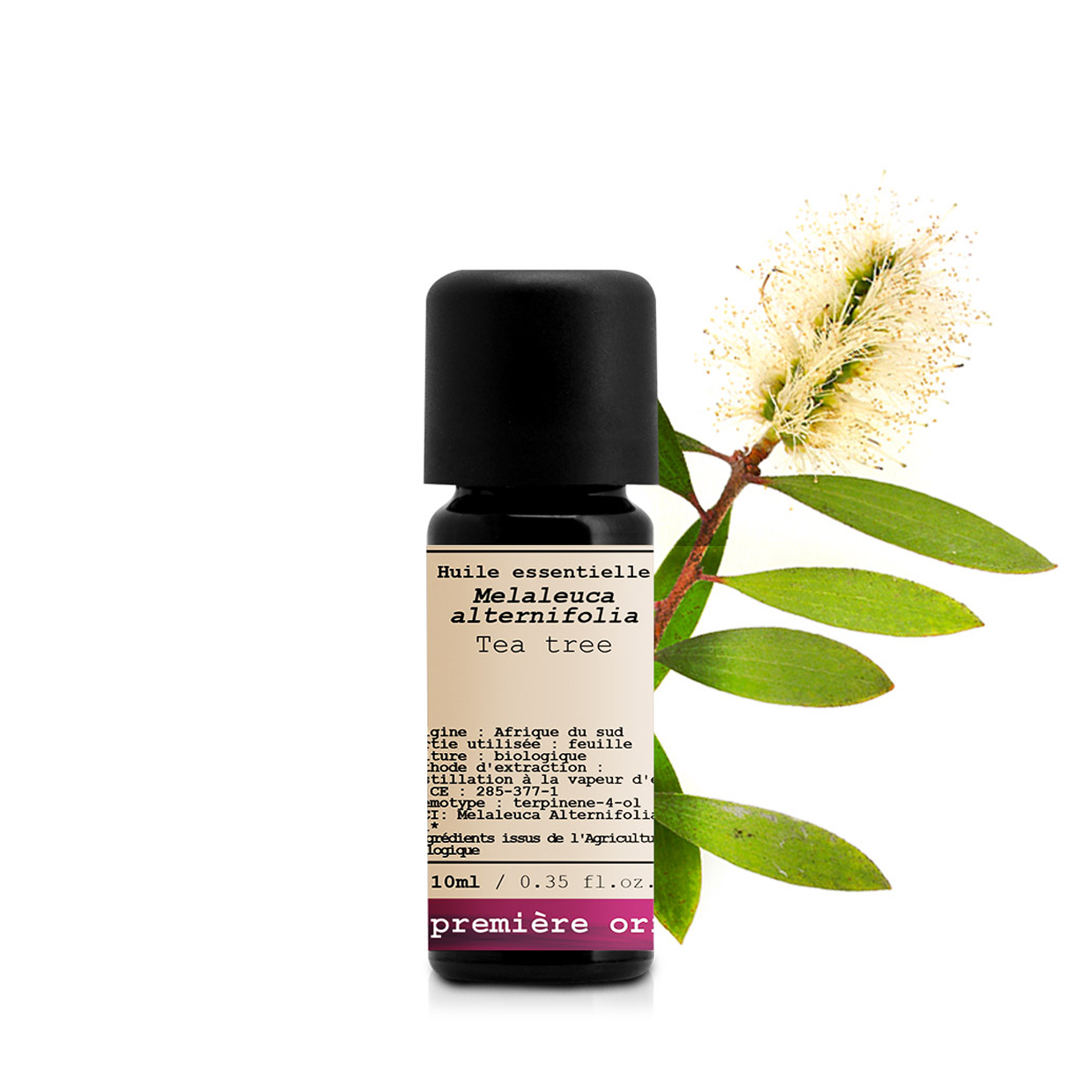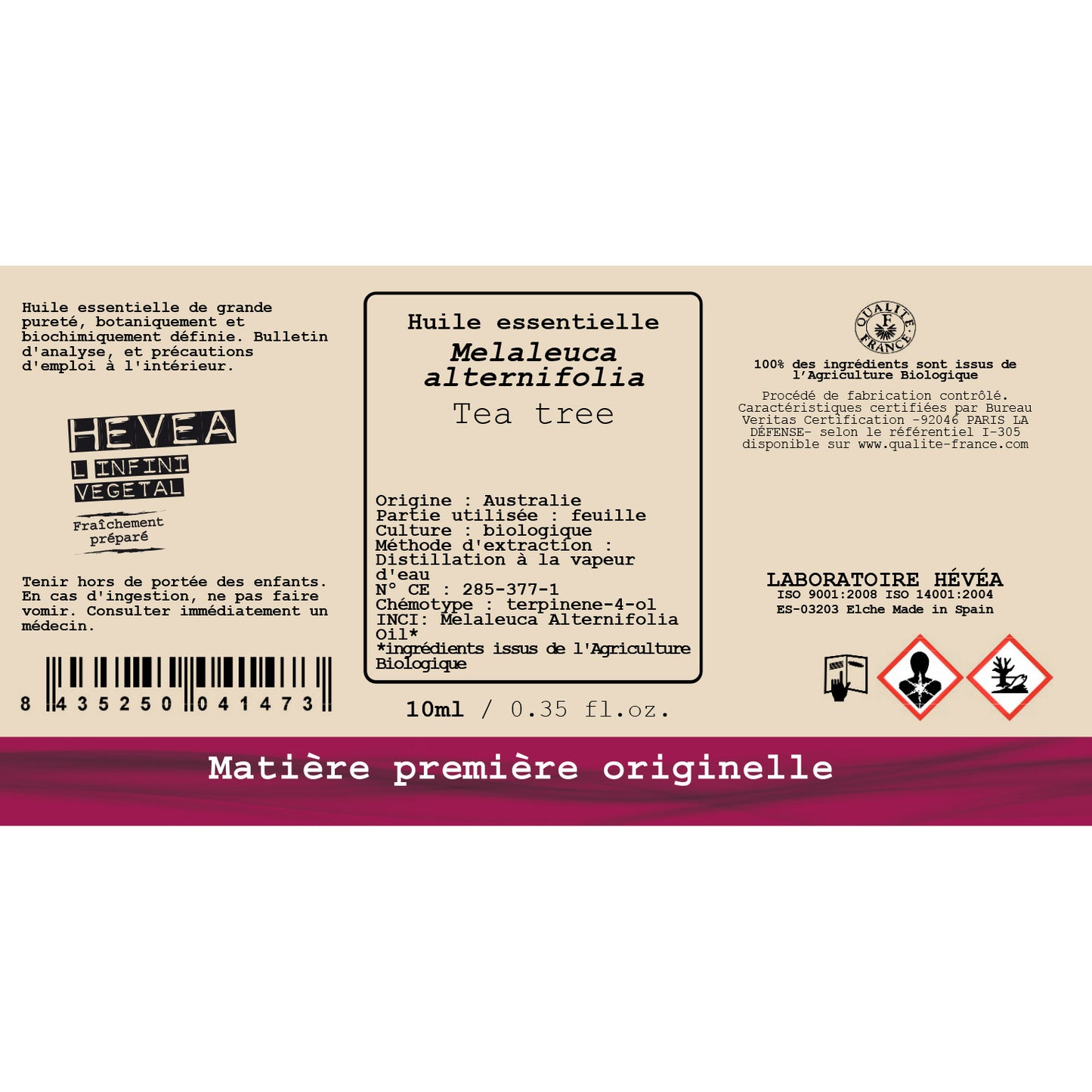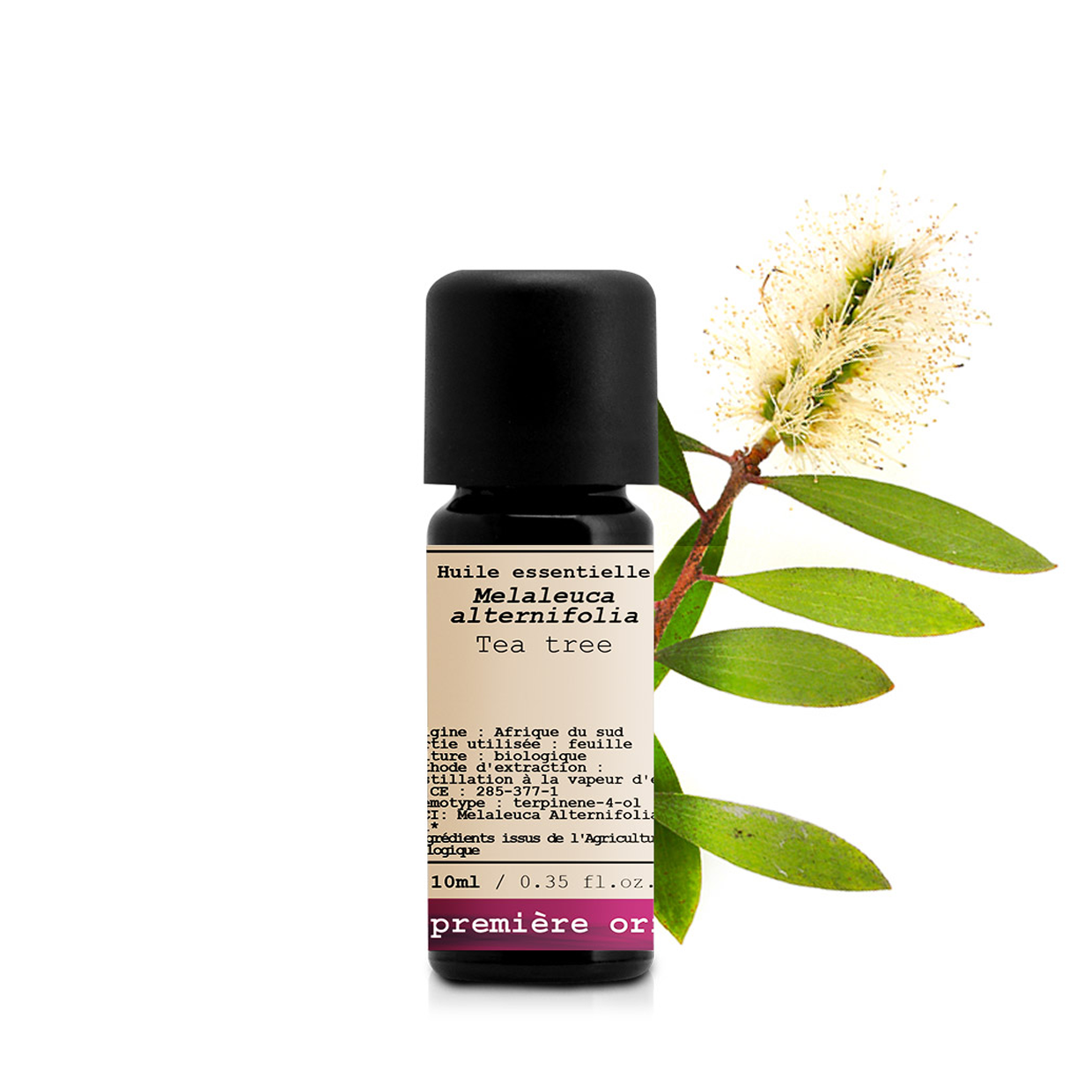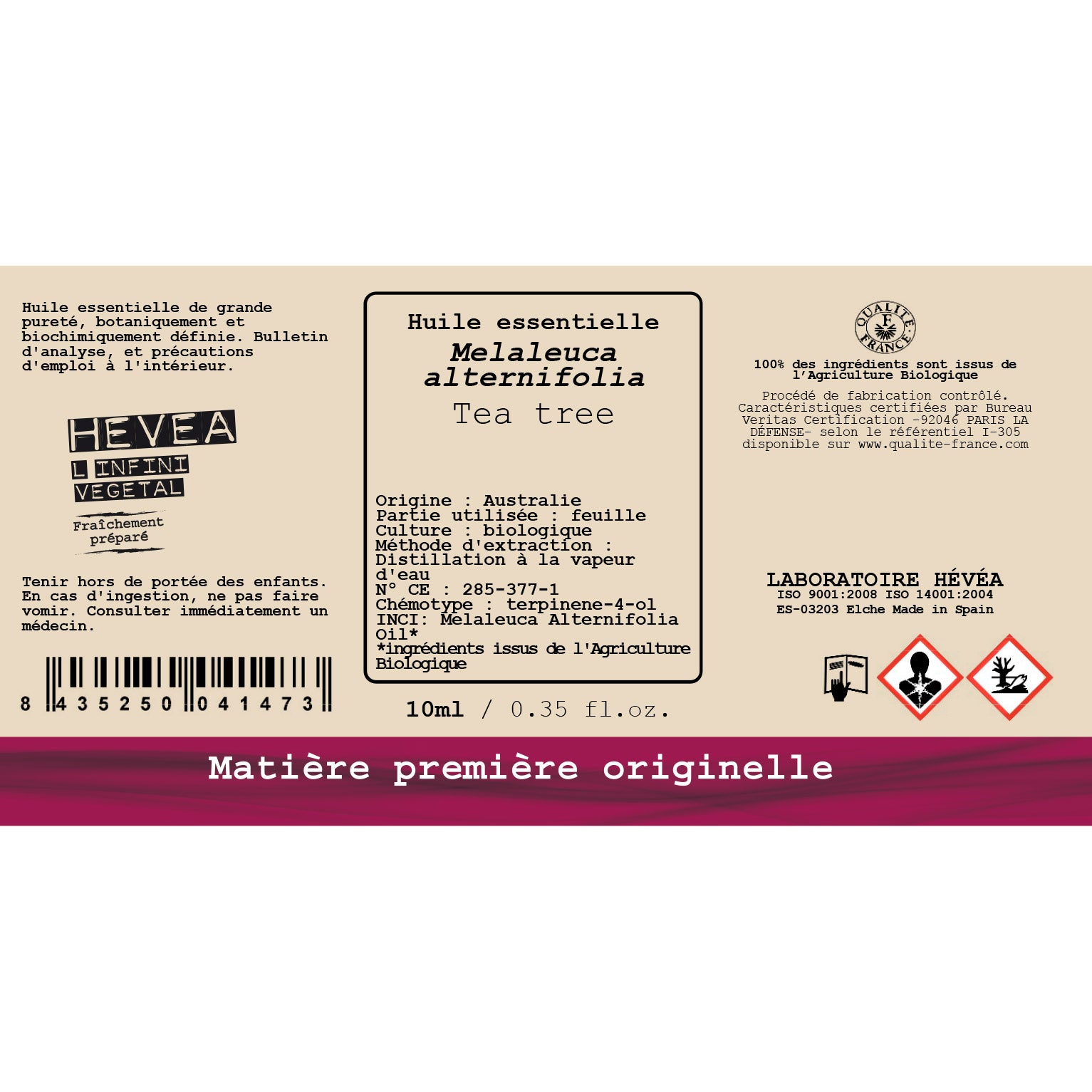laboratoire hévéa
Tea Tree _ Essential Oil
Tea Tree _ Essential Oil
Couldn't load pickup availability
This product is only shipped to the following countries:
Germany, Austria, Belgium, Bulgaria, Cyprus, Croatia, Denmark, Slovakia, Slovenia, Spain, Estonia, Finland, France, Greece, Netherlands, Hungary, Ireland, Italy, Latvia, Lithuania, Luxembourg, Malta, Poland, Portugal, Czech Republic , Romania, Sweden.
Please do not send orders for this product outside of these countries as they will not be shipped.
Tea tree - Melaleuca alternifolia
Chemotype: terpinene-4-ol
Cultivation: organic
Used part: leaf
Origin: South Africa
Extraction method: Steam distillation
Principal ingredients: p-cymene, 1,8-cineole, Terpinene-4-ol, Gamma-terpinene, Alpha-terpinene
INCI : Melaleuca Alternifolia Leaf Oil*
* ingredients produced by Organic Farming
Scent: Fresh, resinous aroma, slightly moldy, used in perfumery.
Contents: 10ml - Glass bottle anti-UV with dosing dropper
Indications: Essential oil of high purity, botanically and biochemically defined. Analysis bulletin, and precautions for use inside the box.
The essential oil of Tea-tree has an important curative power: powerful antiseptic, major anti-infective, broad-spectrum antibacterial and immunostimulant. It is active against bacteria, viruses and mycoses, but also very interesting to fight against digestive, uro-genital and respiratory infections. In external application, it is also anti-inflammatory.
Instructions of use:
- Main uses of Essential Oils: medical treatment (oral, transcutaneous, cutaneous, pulmonary application), therapeutic massage, cosmetic skin and hair care, balneotherapy, perfumes and cosmetics and gastronomy.
- Essential Oils are highly concentrated vegetable extracts. For all methods of adsorption and in particular oral application, use the appropriate excipients.
- Essential Oils are not water-soluble: do not use water as an excipient, use vegetable oils, a cleansing base (shampoo, shower gel), alcohol or a neutral cream base.
- For oral application: dilute Essential Oil in a vegetable oil, honey or sugar (sugar cane syrup).
Warnings:
- Keep out of the reach of children.
- Never pour pure Essential Oils into water, if used in this way they may cause skin irritation.
- Not suitable for children under the age of 3.
- Some Essential Oils may be dangerous for pregnant and breast-feeding women. Avoid self-medication. Seek advice from your aromatherapy doctor.
- Special attention should always be given to patients with a known allergy; a certain number of potentially allergenic molecules may be present in Essential Oils (cinnemaldehyde, citral, citronella oil, eugenol, geraniol, d-limonene, linalol, coumarin etc.).
- Some Essential Oils irritate the skin and mucous membranes; bear in mind the aggressiveness of phenols and aldehydes to the skin and mucous membranes. Select suitable excipients and appropriate concentrations.
- A skin test is recommended prior to use for checking tolerance of Essential Oils (apply to inside of the wrist).
- If oils are splashed into the eyes, wipe the affected eye immediately with a cotton wool pad soaked in pure vegetable oil or place a few drops of pure vegetable oil into the eye.
- Never apply pure Essential Oils to the anogenital region, aural or nasal passages or administer intravenously.
- In the event of accidental swallowing ingest vegetable oil (1 to 3 tablespoons), do not induce vomiting. Never drink water.
- All citrus essential oils are photosensitive. Do not expose yourself to the sun within 12 hours of application or ingestion.
- Peppermint essential oil should never be applied over an extensive cutaneous area (freezing reaction).
- Medical supervision is essential for all pathologies with a lengthy duration and for the elderly since it is advisable to check the absence of an interaction between Essential Oils and on-going treatments.
In the event of the accidental ingestion of a large quantity of Essential Oil contact your nearest anti-poisons centre.
Storage: Keep out of light and away from heat.
Share




